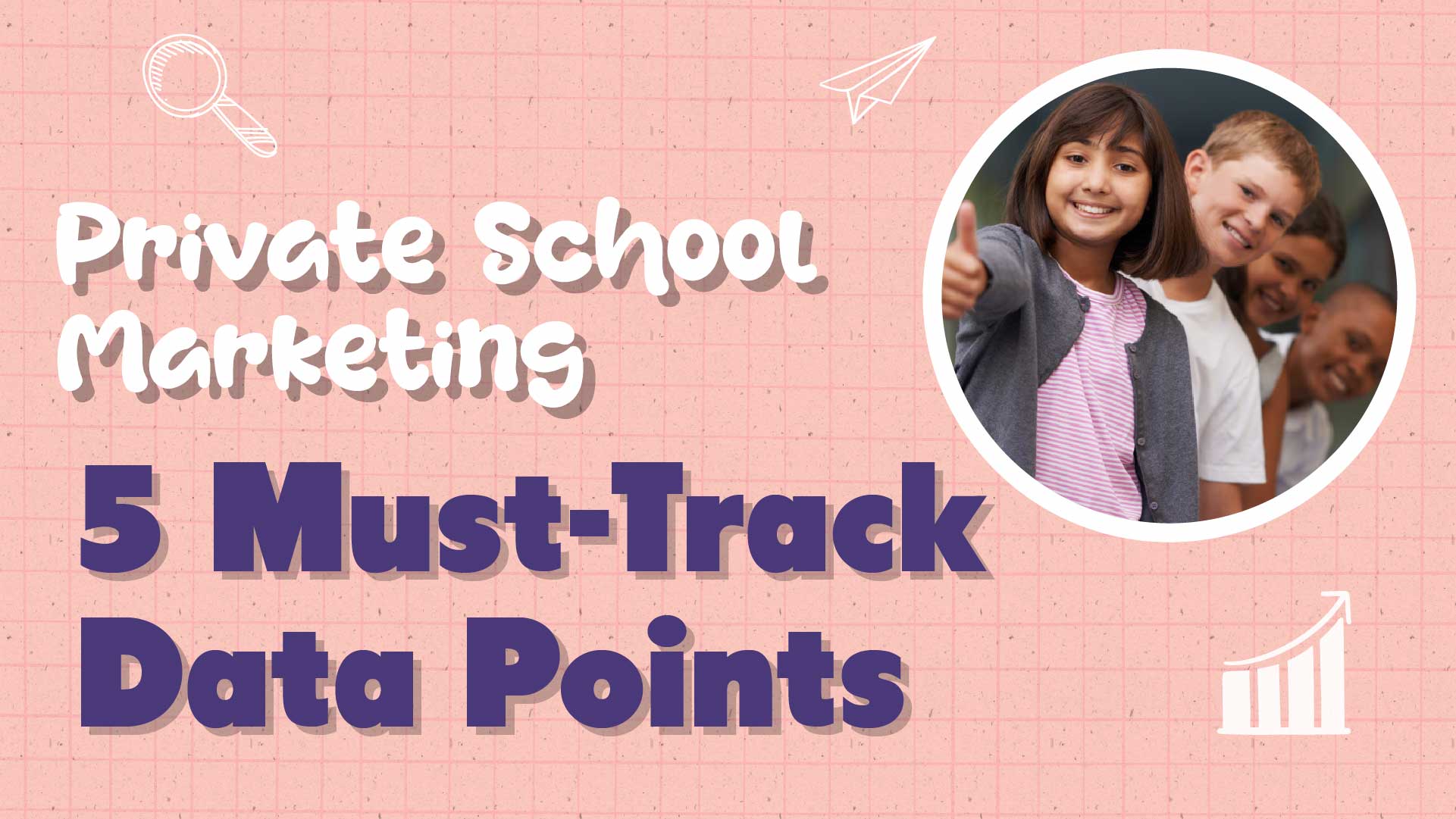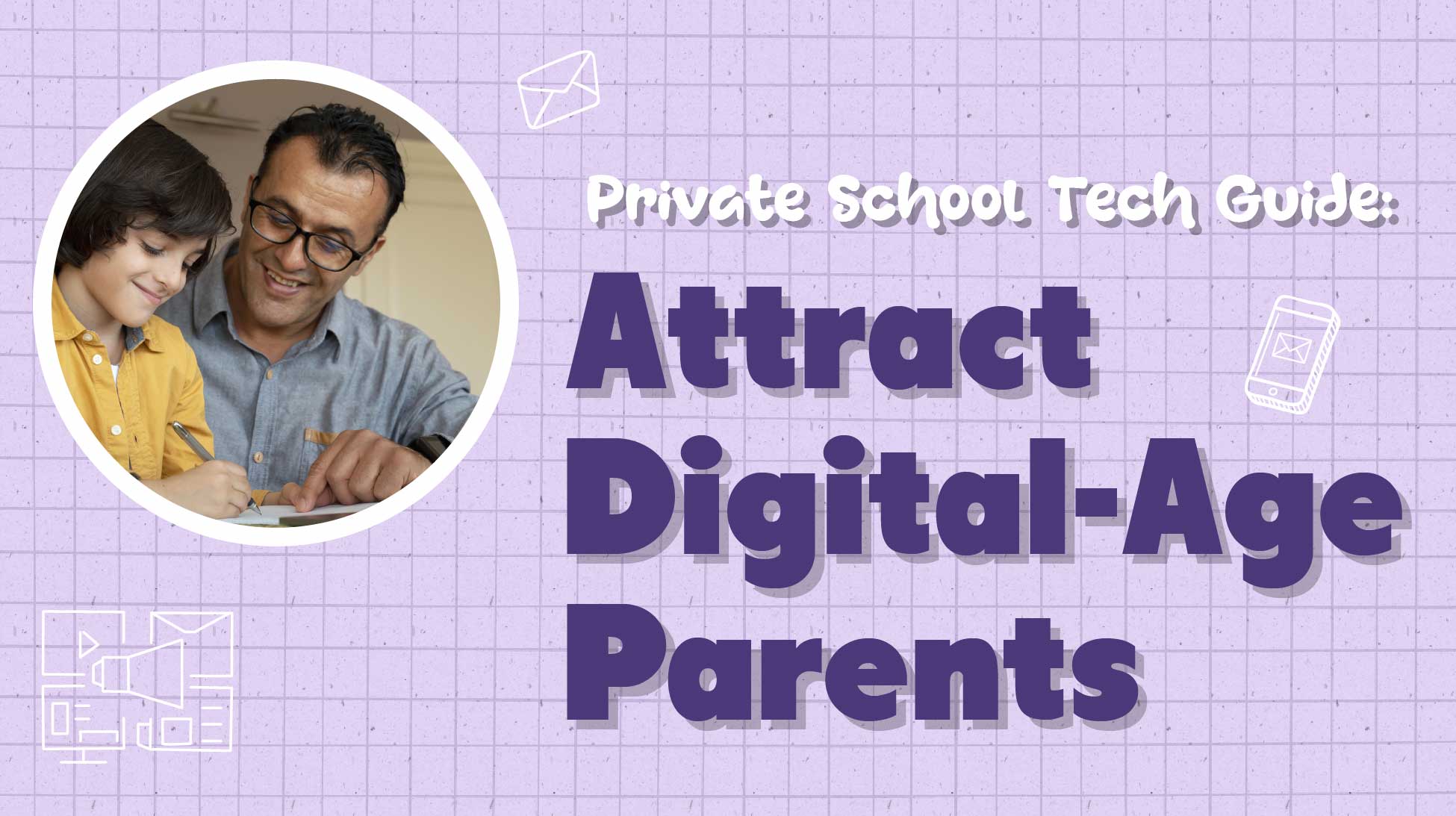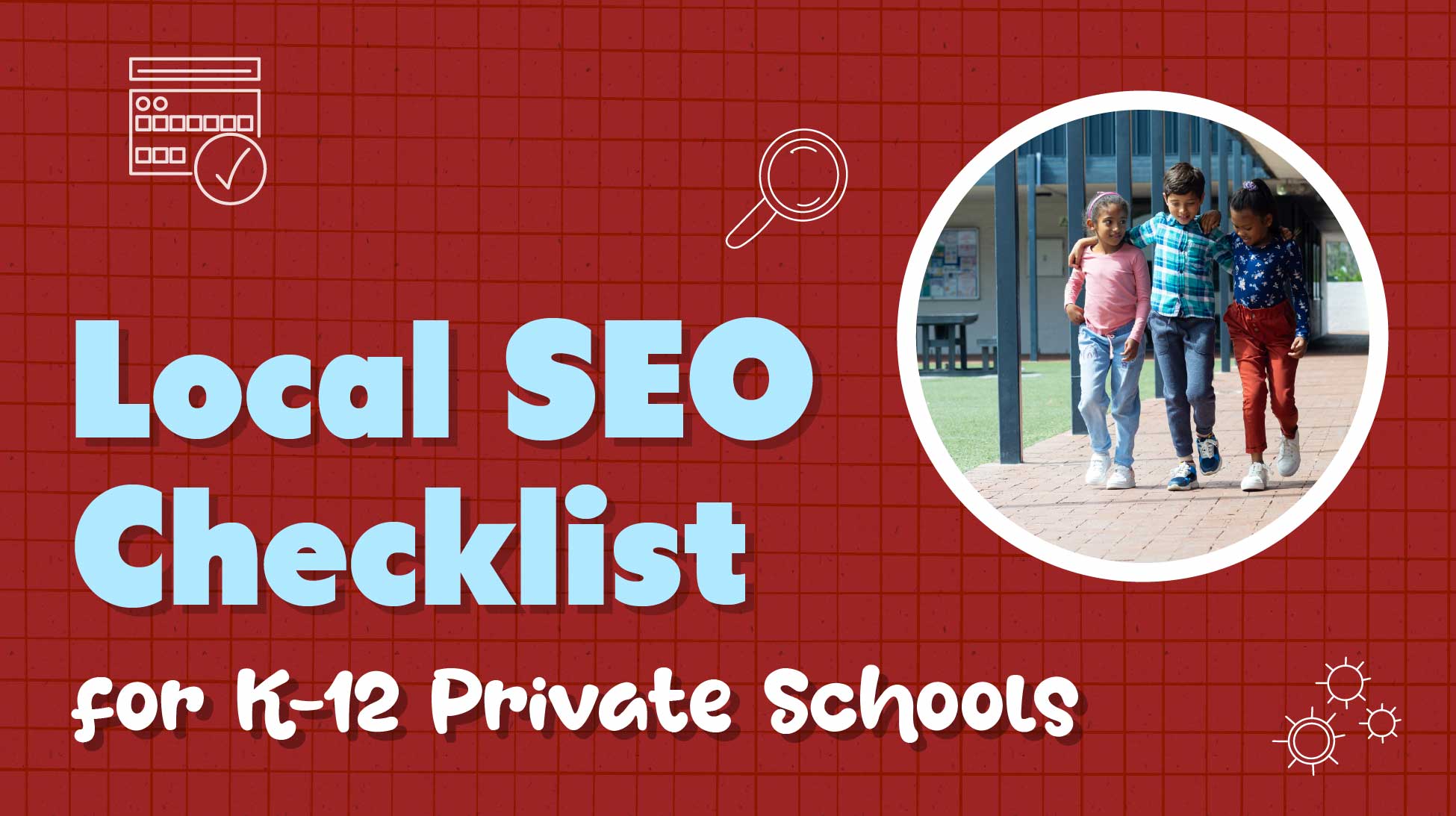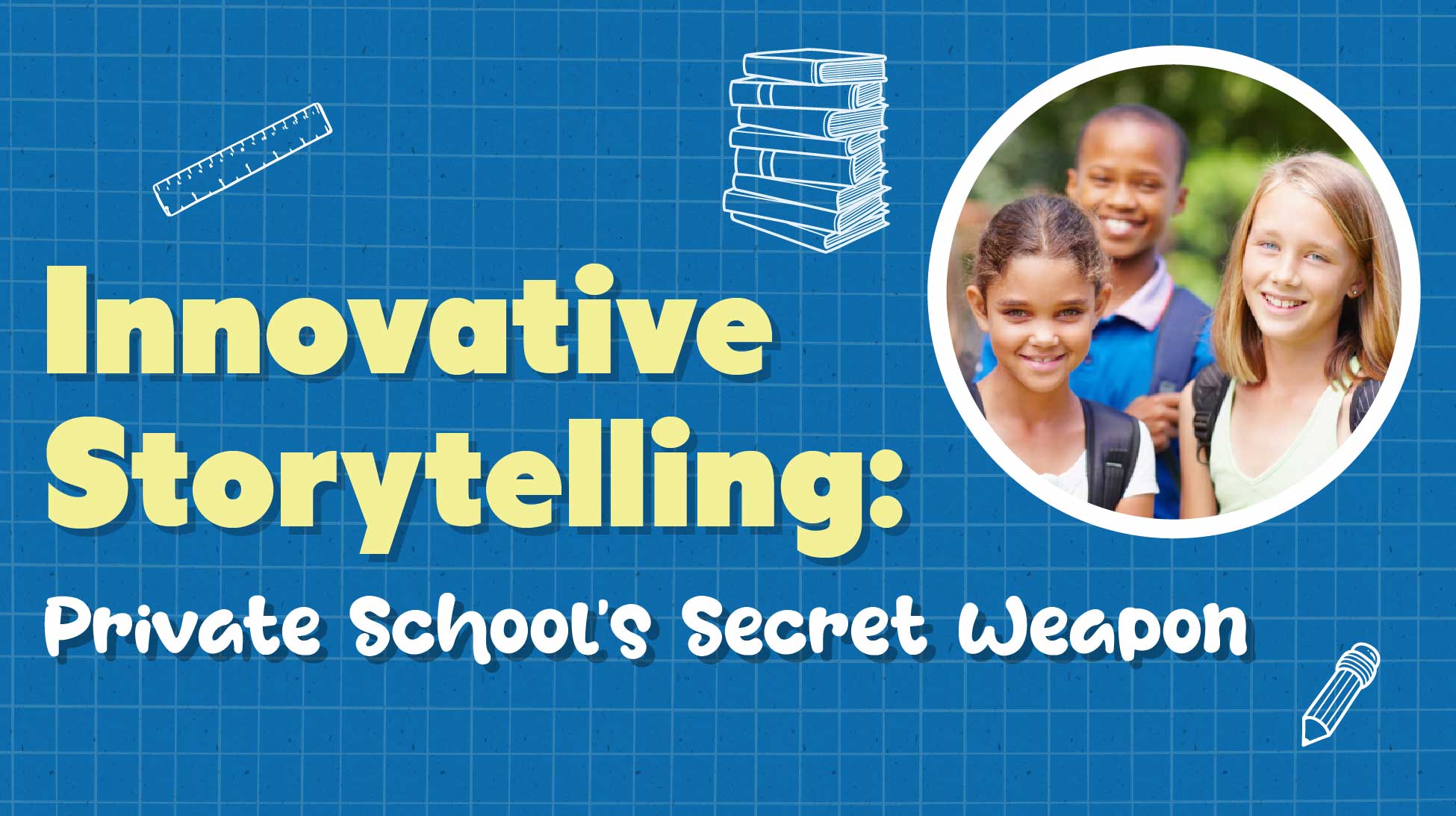If you're a private school administrator, principal, or board member looking for ways to reach modern parents, you've come to the right place. Think of it as cracking a complex code. One that unlocks the secrets to reaching them and driving your private school enrollment growth. This blog provides the cipher - an approach to creating targeted campaigns that engage elusive but essential audiences: parent personas.
Defining Parent Personas
Every parent is unique, and they all have different beliefs, values, and goals when it comes to raising their children. To capture these differences, private school admissions coordinators and administrators need to develop the concept of parent personas.
A persona is a semi-fictional representation of a key target audience segment grounded in actual data and insights.
A parent persona specifically is a fictional representation of a particular parent archetype. It helps private school administrators understand key parent demographics, psychographics, and archetypes that make up their target families and students. By defining these parent personas, you can tailor your messages and offerings to appeal to specific groups of parents and increase your chances of success. Without them, your marketing plans could miss the mark and fail to resonate with your intended audience. Defining parent personas is key to gaining deeper insight into your target market and connecting more effectively.
Factors to Consider When Identifying Your Target Parent Personas
Identifying your target parent personas is crucial to the success of your marketing strategy. Parent persona research is essential in understanding your audience and their needs, wants, and behaviors. Conducting parent surveys and interviews helps gather valuable data that can inform your marketing decisions.
Factors to consider when identifying your target parent personas include:
- Demographics
- Socioeconomic status
- Family Values
- Parenting Styles
- Religious Affiliations (if applicable)
- Communication Preferences
Developing Detailed Profiles: Crafting Personas Based on Your Research
Moving past flat descriptions to well-rounded narratives brings your personas to life. In today's rapidly evolving world, your school needs to cater to the specific needs and preferences of your families. Creating detailed profiles can help you understand the preferences and behaviors of parents, enabling you to craft products and services that resonate with them. Compile information about their age, gender, income, education, and other relevant aspects to create an accurate persona. Understanding your audience's desires enables you to craft targeted strategies that cater to their needs, thereby boosting your school's success.
Questions to Ask:
- What is the age range of the parents you're targeting?
- Where do these families live?
- What is their average household income?
- How many children do they have?
- What are the age ranges of their children?
- Are there specific cultural or religious affiliations?
- What do they value most in a school (academic rigor, arts programs, sports, etc.)?
- What are their expectations from a private school education?
- Are they looking for a specific curriculum or teaching method?
- Who decides where to send their children to school?
- What factors influence their decision-making process?
- How do they research potential schools (online, word-of-mouth, school visits, etc.)?
- How do they prefer receiving school information (email, social media, print)?
- What type of content do they find most valuable (student achievements, school updates, educational tips)?
- How frequently would they like to hear from you?
- What challenges do they face when choosing a school?
- What concerns do they have about private school education?
- What obstacles could prevent them from enrolling their children in your school?
Appealing to Personas Through Content
Leveraging the right content format, topics, tone, and channels for each persona is key to crafting campaigns that hit the mark. However, in order to appeal to your target parental personas effectively, you must first understand their unique wants and needs. By tailoring your content format, themes, tone, and messaging to each persona, you can speak directly to their specific pain points and aspirations.
Examples
Let's explore how a hypothetical school, "Greenfield Academy," crafted a marketing plan with a distinct persona for the different archetypes:

The Traditionalist
The Smith Family favors schools with traditional values and methodologies. They appreciate uniform policies, discipline, and a structured approach to education.
- John and Lisa Smith, both in their mid-40s
- Their children, Emma (11) and Daniel (14)
- Values structure, discipline, and a strong moral and religious foundation in education
- Enjoys the idea of school uniforms and traditional teaching methods

The Tech-Savvy Parents
The Johnson Family are always on the go and appreciate the integration of technology in education. They value online portals for grades, assignments, and communication.
- David and Sarah Johnson, a tech-savvy couple in their early 30s
- Their child, Ethan (9)
- Prefer schools with integrated technology for communication, assignments, and progress tracking
- Often on the go and appreciate digital tools for involvement

The Community Builders
The Garcia Family values schools with strong community involvement. They are likely to participate in parent-teacher associations and volunteer for school events.
- Carlos and Maria Garcia, a vibrant couple in their late 30s
- Their child, Sofia (8)
- Actively involved in the Parent-Teacher Association (PTA) and volunteer for school events
- Value strong community ties and school involvement

The High Achiever
The Anderson Family wants their children to excel academically. They value rigorous curriculums and opportunities for advanced learning.
- Michael and Emily Anderson, both in their early 40s
- Their children, Olivia (12) and Benjamin (16)
- Seek schools with rigorous academic programs and opportunities for advanced learning
- Encourage their children to excel academically
The Nurturer
The Wilson Family values a supportive and nurturing environment over a strictly academic focus. They appreciate schools that emphasize personal growth and character development.
- Robert and Susan Wilson, a caring couple in their early 40s
- Their child, Lily (10)
- Value a supportive and nurturing environment that emphasizes character development
- Emphasize personal growth and well-being over strict academics

The Networker
The Davis Family sees the school as a social hub - an opportunity to form relationships with like-minded families. They value community events and engagement.
- James and Laura Davis, social and outgoing parents in their late 30s
- Their child, Ava (13)
- See school as a social hub and enjoy community events and engagement
- Value relationships with like-minded families
The Innovator
The Patel Family is drawn to schools that offer innovative teaching methods, technology integration, and forward-thinking philosophies.
- Raj and Priya Patel, innovative-minded parents in their late 30s
- Their child, Aiden (11)
- Attracted to schools with forward-thinking teaching methods and technological integration
- Appreciate schools with progressive educational philosophies

The Advocates for Individuality
The Carter Family seeks schools that focus on nurturing individual talents and encourage self-expression. They appreciate personalized learning approaches.
- Mark and Jessica Carter, a creative couple in their early 40s
- Their child, Mia (15)
- Seek schools that nurture individual talents and encourage self-expression
- Value personalized learning and creative development

The Sustainability Champions
The Miller Family values environmental education and practices in schools. They are drawn to schools with green initiatives and outdoor learning opportunities.
- Adam and Rebecca Miller, environmentally conscious parents in their early 40s
- Their child, Noah (12)
- Value schools with green initiatives, environmental education, and outdoor learning
- Actively promote sustainable practices at home and school

The Global Citizens
The Kim Family values diversity, inclusivity, and global awareness in education. They appreciate a school curriculum that includes subjects like world cultures, languages, and global issues.
- Young and diverse parents, Minho and Mei Kim, in their late 20s
- Their child, Kai (9)
- Value diversity, inclusivity, and global awareness in education
- Appreciate a curriculum that includes world cultures, languages, and global issues
Leveraging Communication Channels
Effective communication is pivotal for any organization to grow and succeed. However, simply blasting out the same message across all platforms is not enough. It is essential to know the preferences of your target audience and communicate with them in a way that they can relate to and value. This is where the concept of leveraging communication channels comes into play. By adapting your outreach and platforms to suit the preferences of different personas, you can effectively convey your message and establish a strong relationship with your audience. Taking the time to understand which platforms your audience prefers and how they engage can mean the difference between success and failure. So, take the time to understand your audience's preferences and adapt your communication strategies accordingly for maximum impact.
Metrics and KPIs to Track
Metrics and KPIs are crucial in tracking progress and identifying areas for improvement. When determining which metrics to track, it's important to consider your school's goals and objectives. For example, if you are looking to increase website traffic, you may want to track metrics such as page views, unique visitors, and bounce rate. Similarly, if you are focused on improving parent and student satisfaction, metrics such as Net Promoter Scores and student retention rates can provide valuable insights. When setting goals for these metrics and KPIs, it's important to establish benchmarks based on your industry standards, historical data, and competitor performance. By regularly tracking and analyzing these metrics, you can make data-driven decisions and take meaningful actions to improve your school's performance.
Adjusting Your Strategy: How to Pivot Your Approach Based on Data and Insights
Creating an effective marketing strategy involves creating a plan that works for your target audience. This means being able to segment your audience into specific groups so that you can more easily tailor your messaging and automate your marketing workflows. Using personas allows you to create more personalized messaging and content that speaks directly to parent's needs and preferences. By segmenting your audience in this way, you can ensure that your marketing efforts are focused on delivering the right message to the right people at the right time. So if you're looking to improve your marketing ROI, consider using personas as part of your segmentation and automation strategy.
Adjusting Parent personas is significant to the success of a school's marketing and communication strategies and can be used to create tailored content that resonates with each individual parent. Once you have identified your target personas, leveraging the right platforms and outreach channels is critical for reaching those audiences in order to measure your efforts and see the highest ROI. From there, you can focus on targeting segmented personas with personalized messaging through automated marketing or advertising campaigns. All of these areas are important for developing an effective strategy that will help meet your goals within budget.
Optimizing Personas
As you gather new data and insights, periodically review and update your persona profiles to keep them current. Set reminders to revisit personas every six months. Monitor parent feedback channels to identify any emerging trends or changes in needs. Stay on top of market research to realign personas if necessary. Validating them annually through surveys or interviews is also recommended. Keep personas dynamic and reflective of your real parent segments.
Conclusion
As mentioned throughout this blog post, creating parent personas isn’t easy, but it can drastically draw out a clear audience profile and effective communication plan down the line. If you need any guidance on mapping out parent personas or tailoring content, don't hesitate to book a free 30-minute consultation with me to kickstart the process for your private school's digital marketing strategy.







